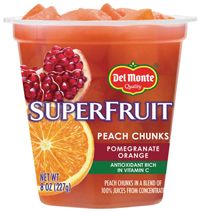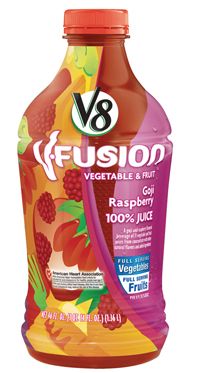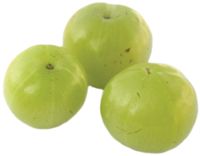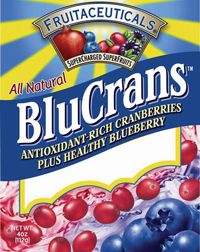Superfruit Strategies

Not long ago, exotic fruits like acai, goji, and mangosteen were part of a new market category called superfruits that was largely known only to those in the nutraceutical industry. Today, new superfruit products can be found just about anywhere, from grocery store shelves to convenience stores. And the highly competitive superfruit market is continuing to grow.
Recently, superfruits, specifically acai, have been the focus of damaging media scrutiny. News reports have centered on a few isolated cases of companies that have allegedly used questionable business practices to sell acai products to unsuspecting consumers. In certain cases, the Better Business Bureau (BBB) has even been forced to issue warnings to consumers about online advertisements that promised free trials of acai weight?loss products. According to the bureau, consumers have logged thousands of complaints stating that they signed up for what they thought was a free trial only to be charged month after month for products they did not intend to order.
The BBB also warned consumers about companies that abused celebrity endorsements. They may have been presented as a specific endorsement of a company or product. Other accusations against these companies include selling poor-quality acai products and promising drastic weight loss after supplementation.
Unfortunately, stories such as these have overshadowed the many positive instances of companies that create healthy and useful superfruit products.
The recent negative news stories coupled with the rapid growth of the superfruit market present a new set of marketing challenges for companies hoping to launch a quality, differentiated, and trusted superfruit product. Whether a superfruit product contains more-traditional ingredients, like blueberries, or something more exotic, like goji, marketers will have to find a way to help consumers recognize, remember, and trust their product.
Marketers can overcome these challenges and create a positive marketing campaign that successfully supports their superfruit product by focusing on advantages such as branded ingredients, unique delivery systems, and scientific research.
Focus on Branded Ingredients

Using branded superfruit ingredients can be a significant advantage when you create a marketing campaign. Branded ingredients can be a strong point of differentiation and convey the message that you have invested in superior superfruit ingredients.
Companies that offer branded ingredients have usually spent significant resources to ensure that their product logo is synonymous with quality and effectiveness. When you include a branded ingredient's logo on your product packaging, you can take advantage of the marketing and product development groundwork already laid down by the ingredient developer.
Focus on Delivery
Marketing your product as a convenient way for consumers to add more fruit nutrition to their diets can help differentiate your product; it can also make superfruits more accessible to a wide range of buyers.
For example, unique delivery systems such as on-the-go and single-serving products are gaining popularity as consumers try to fit better health into their hectic lifestyles. Superfruits can easily be incorporated into products like ready-to-mix stick-pack beverages, snack or meal replacement bars, juices, or individual-serving fruit cups.
Del Monte is one example of a company that has packaged superfruits into a convenient, single-serving product. The company's 8-oz SuperFruit cups contain high-antioxidant superfruits like acai, pomegranate, and passion fruit. Campbell's V8 V-Fusion juices are yet another example of products that conveniently deliver superfruit nutrition. Several juices in the line contain superfruits like goji and passionfruit blended with other more-traditional fruits and vegetables.
SUPERFRUITS IN THE NEWS
Saberry Receives GRAS Status
Sabinsa Corp.'s (Piscataway, NJ) new branded superfruit ingredient, Saberry, was granted generally recognized as safe (GRAS) status this spring. Saberry is an extract of amla (Indian gooseberry).
Saberry contains 10% beta-glucogallin and 50% gallates. According to Sabinsa, Saberry is unlike many amla extracts that are standardized using ascorbic acid as a biomarker. According to Sabinsa, ascorbic acid is not always present in amla in consistent amounts. Instead, Saberry's biomarker is the beta-glucogallin, which the company says is a more powerful antioxidant than ascorbic acid.
Blueberry-Infused Cranberries Awarded for Taste

Decas Cranberry Products Inc. (Carver, MA) produces BluCrans, which the company says provides the health benefits of both blueberries and cranberries. According to the company, one serving (40 g) of BluCrans contains the type-A proanthocyanidin antioxidant equivalent of one glass of cranberry juice cocktail and the juice equivalent of 20 fresh blueberries.
BluCrans is part of Decas's Fruitaceuticals line of enhanced dried fruits, which, like BluCrans, combines other superfruits with cranberries.
Cran-Max Tested for Prevention of Urinary Tract Infections

The randomized, controlled clinical trial tested 137 women who experienced two or more antibiotic-treated UTIs in the previous 12 months. The subjects were randomized to receive either 500 mg of Cran-Max or 100 mg of trimethoprim for six months. The researchers found that the time to first recurrence of UTI was not significantly different between the two groups.
"Our trial is the first to evaluate cranberry (Cran-Max) in the prevention of recurrent UTIs, specifically in older women, and the first head-to-head double-blind comparison of cranberry versus antibiotic prophylaxis," said lead researcher Marion E. T. McMurdo. "Trimethoprim had a very limited advantage over cranberry extract (Cran-Max) in the prevention of recurrent UTIs in older women and had more adverse effects."
Cran-Max is a product of Proprietary Nutritionals Inc. (Kearny, NJ), a subsidiary of Pharmachem Laboratories Inc.
Superfruit Blend Activates Enzyme
VitaBerry Tropical, a high-antioxidant superfruit blend from FutureCeuticals Inc. (Momence, IL), was found in an in vitro study to activate the enzyme quinone reductase (QR). According to FutureCeuticals, QR is associated with improved cell protection and resistance to oxidative stress. VitaBerry Tropical is a proprietary blend that includes superfruits such as whole coffee concentrate, acai, mangosteen, acerola, and camu camu.
Focus on Research
The recent negative attention on the industry makes it essential for product developers to find science-supported superfruit ingredients. The challenge for marketers is to translate supporting superfruit science into a clear benefit-driven message for the consumer. Often this means that marketers need to step into sometimes unfamiliar territory by interviewing researchers and studying as much scientific material as possible about the superfruit. The marketing department must have a thorough understanding of how research has connected superfruit nutrition with human health in order to successfully translate that message for the consumer.
In many cases, the research about a superfruit can point to several different nutritional benefits. Though the science might justify listing many benefits or structure-function claims for your superfruit product in your marketing material, a less-is-more approach might be more successful. Focusing your marketing on a few nutritional benefits that are strongly supported by published research (while keeping within the appropriate health-claim parameters) offers a few advantages. One is that consumers are less likely to become confused by what your superfruit product offers because you have presented it with a clear focus. Another advantage is that consumers might be more willing to trust your product because it doesn't seem to be a "miracle supplement" that can solve a myriad of health problems.
Though the challenges of launching a successful superfruit product may seem difficult to overcome, a positive marketing campaign can help your product stand out. Using marketing to clearly show consumers that you have invested in creating a quality product that delivers superfruit nutrition can lead to a long and successful product life.
Kay Kapteyn is marketing manager at FutureCeuticals Inc. (Momence, IL). FutureCeuticals specializes in providing science-supported, natural ingredients to the nutraceutical, functional food, and cosmeceutical industries.
HHS announces restructuring plans to consolidate divisions and downsize workforce
Published: March 27th 2025 | Updated: March 27th 2025According to the announcement, the restructuring will save taxpayers $1.8 billion per year by reducing the workforce by 10,000 full-time employees and consolidating the department’s 28 divisions into 15 new divisions.






